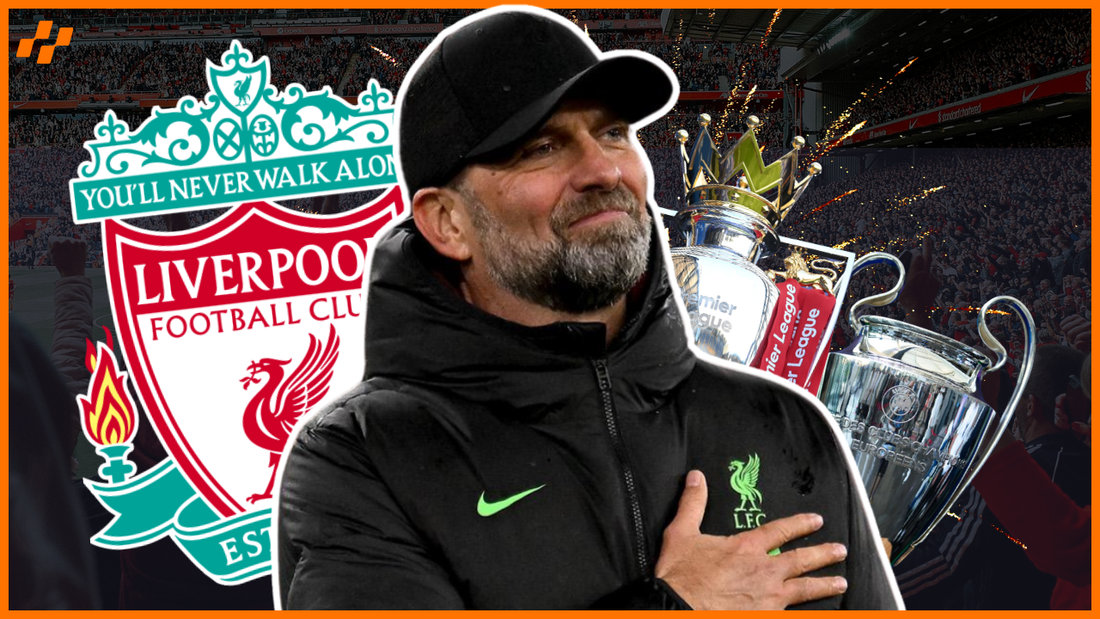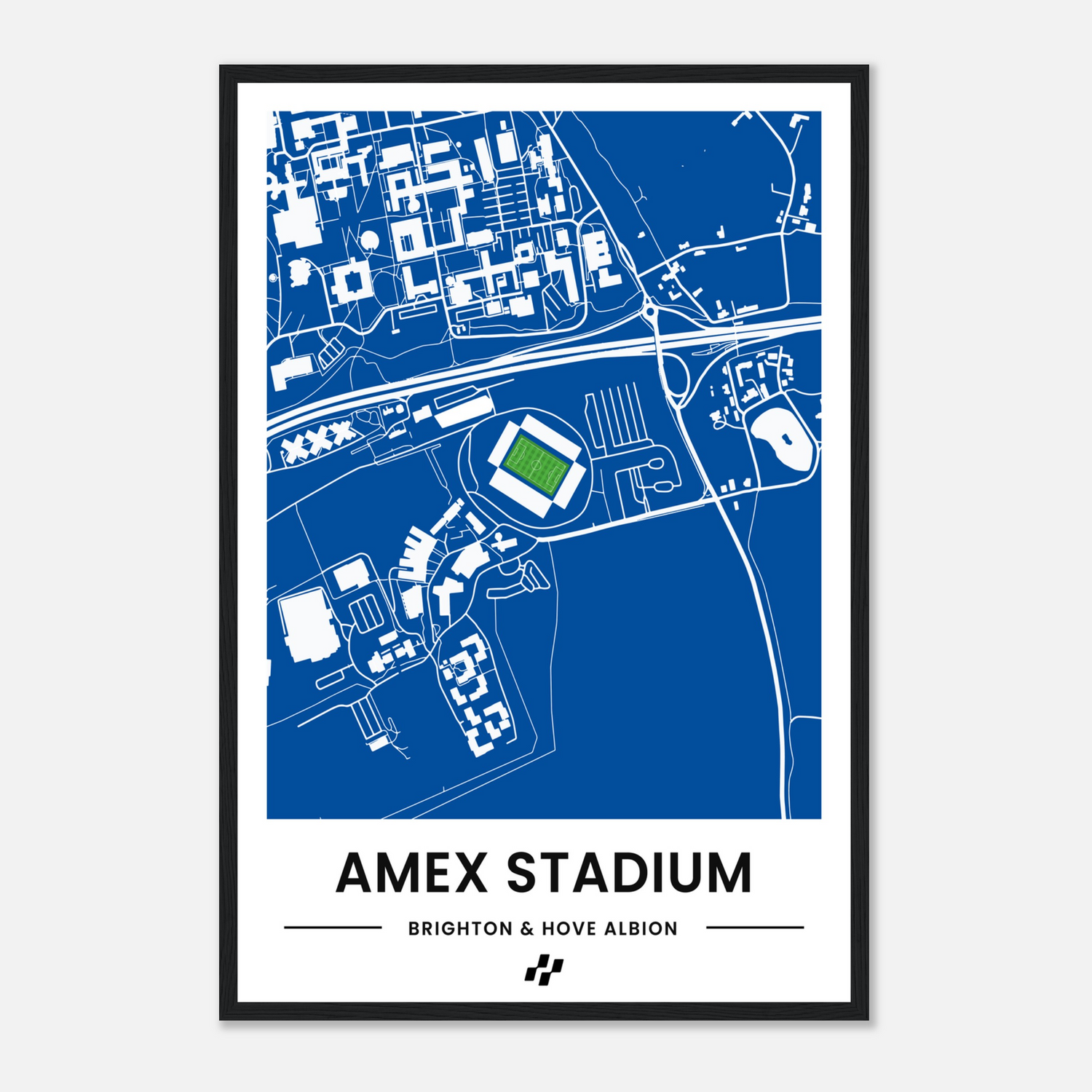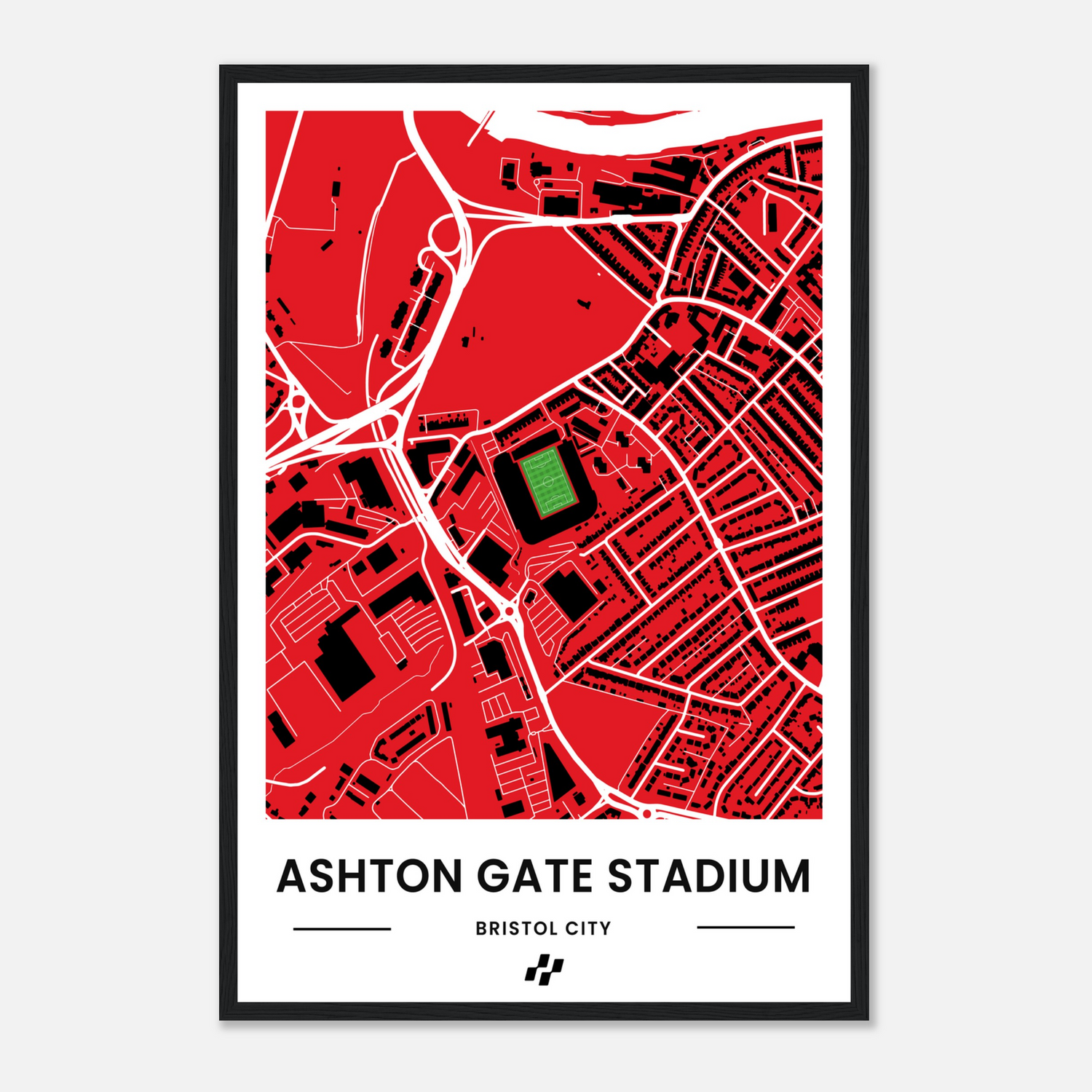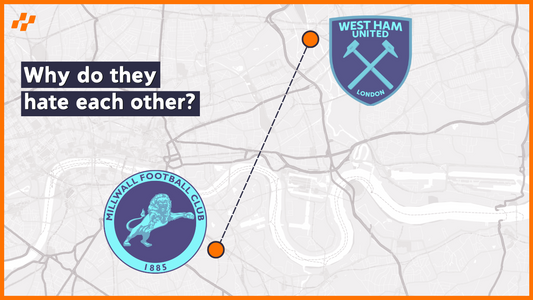
How Jurgen Klopp Changed Liverpool
Share
Throughout the history of the Premier League, English football has witnessed remarkable transformations. From Alex Ferguson's revitalization of Manchester United to Arsene Wenger's innovative approach at Arsenal, each manager left an indelible mark on the game.
However, perhaps the most monumental transformation was orchestrated by Jurgen Klopp at Liverpool FC.
From grappling with internal dysfunction on and off the pitch, to competing in a competitive landscape dominated by big spenders. We delve into Jurgen Klopp's remarkable journey of transforming Liverpool, cementing his status as one of the most influential managers to grace Anfield and the Premier League.
Watch the video on our YouTube channel here
Arrival
When Klopp arrived at Anfield in October 2015, the club was struggling, Brendan Rodgers had gone from nearly winning the title to losing Luis Suarez, seeing Steven Gerrard leave the club to retire in America, and building a squad that was in complete disarray. Having briefly contended for a title nobody saw coming, Liverpool were back to their ‘natural position’ of the Premier League years: behind Manchester United, Arsenal, and now Chelsea and Manchester City. Even clubs like Tottenham Hotspur felt like they were in a better place overall.
On top of this was the assumption that the club's current owners were simply looking to see Liverpool finish in the European spots and sell players on to their richer rivals. Klopp faced the need to turn around a depressed club with little leadership in key areas.
Taking over in the immediate aftermath of a draw with rivals Everton, the last game that Rodgers oversaw, Klopp immediately implemented a style similar to that seen at Dortmund. His time in the Bundesliga had been marked by his heavy metal principle, aggressive counter-pressing, efficient regains and strong duelling, coupled with purposeful attacking football.
In Klopp's first season with Liverpool, they became known for their strong defensive play, ranking as the Premier League's top team for defensive duels. This was a significant improvement from the previous manager. Klopp's emphasis on defensive prowess was evident as Liverpool also recorded the third-highest number of defensive duels overall. This style quickly became a trademark of Klopp's early tenure at Anfield. Despite not clinching trophies, Klopp led the team to the League Cup and Europa League Finals. Although they didn't come out on top in either final, the journey itself was exhilarating for fans. Victories against Klopp's former team, Borussia Dortmund, and arch-rivals Manchester United along the way added to the excitement, reigniting hopes for future success.
One notable improvement was Liverpool's threat on transition. Under Klopp's guidance, the team transformed from being the 14th highest scorers when he arrived to the second-highest by the end of the 2015/16 season. This shift was pivotal in their playing style evolution. In his first full summer transfer window, Klopp made strategic signings that would shape the team's success for years to come. Players like Joel Matip, Georginio Wijnaldum, and Sadio Mane were brought in, each becoming essential figures in Liverpool's lineup. Meanwhile, Jordan Henderson emerged as a central midfield leader, orchestrating play within Klopp's preferred 4-3-3 formation. This midfield support was crucial for the high-pressing tactics employed by the forward trio of Firmino, Mane, and Philippe Coutinho. Notably, these players also displayed immense work rate, diligently tracking back to provide defensive cover when not in possession.
Liverpool averaged around 60 per cent possession in the following two seasons, 2016/17 and 2017/18. But it was their attacking transitions, with Mané, Coutinho and Firmino, that made them such an attacking force.
The Road To Success
With Michael Edwards promoted from technical director to Liverpool’s first sporting director, the two worked together with the recruitment team to find and pursue the right players for Klopp’s system, not necessarily the biggest names.
The 2017-18 season saw the arrival of players like Mo Salah, Andrew Robertson, and Alex Oxlade-Chamberlain, and then Virgil van Dijk in the January window for £75m, overcoming the loss of playmaker Philippe Coutinho who left for Barcelona. Liverpool went on to reach the champions league Final in Kyiv. losing to Real Madrid. Mo Salah’s arrival added to Liverpool’s transitional threat; the Egyptian scored 32 Premier League goals in his debut season.
The 2018-19 season marked a turning point for Klopp and Liverpool, finally tasting success. Klopp bolstered his squad with the acquisitions of four key players: Fabinho, Alisson Becker, Xherdan Shaqiri, and Naby Keita. Additionally, Klopp emphasized the development of young talent from the academy, with players like Trent Alexander-Arnold making significant contributions. The resurgence of The Melwood Academy underscored Liverpool's commitment to nurturing local talent.
Maintaining their trademark possession-based style, Klopp's team continued to dominate with possession rates consistently exceeding 60 percent. Notably, full-backs Trent Alexander-Arnold and Andy Robertson emerged as linchpins of the squad, providing both defensive solidity and attacking prowess down the flanks. Offensively, Liverpool thrived on rapid transitions and dynamic attacking play, with Alexander-Arnold and Robertson serving as vital sources of width and creativity.
Up front, the trio of Mohamed Salah, Sadio Mane, and Roberto Firmino formed a fearsome attacking force, combining blistering pace, technical skill, and lethal finishing to devastating effect.
From 2018 to 2023, Liverpool consistently ranked among the top teams in the Premier League for crosses, a strategy heavily influenced by their dynamic full-backs. Opponents found it challenging to cope with Liverpool's relentless onslaught of crosses and cut-backs, a testament to the team's attacking prowess.
Defensively, Klopp implemented a collective approach to pressing and organized defending. At the heart of this defensive solidarity was Virgil van Dijk, whose towering presence and leadership qualities anchored Liverpool's backline. Van Dijk's commanding performances instilled confidence and stability in the defense, supported by the relentless work ethic of midfielders like Jordan Henderson and Fabinho. Their combined efforts ensured Liverpool remained resolute at the back, frustrating opposition attacks and providing a solid foundation for the team's success.
Liverpool took the league title to the last day of the season, showing their ability to compete for honours once again, albeit falling short despite recording 97 points – an unheard-of points tally not to win the league. They would return to the UCL Final, defeating underdog feelgood story Tottenham in the showpiece final in Madrid, with Mo Salah scoring an early penalty and cult hero Divock Origi sealing the game to win 2-0. Finally, Klopp's transformative impact had a trophy to show for it.
The following season would see more success again; Liverpool would sweep to a league title only held back by the outbreak of the COVID-19 pandemic. They would fall short in Europe and in the domestic cups, going out to Atletico Madrid in the last sixteen while crashing out of both cups before the semi-final stage. The club, though, would end their 30-plus years league title drought – the one thing that Klopp had promised to do on his arrival at the club – to win the league title and put the club on 19 league titles.
Klopp's impact extends well beyond tactical maneuvers; his leadership style is characterized by empathy, passion, and a deep connection with his players. Renowned for his trademark bear hugs and animated presence on the touchline, Klopp wears his heart on his sleeve, demonstrating his unwavering commitment to the team's triumphs. This emotional connection has forged a tight-knit bond within the squad, fostering unity and resilience in the face of challenges. Klopp's ability to instill a winning mindset throughout the team has been instrumental in Liverpool's ability to overcome obstacles and achieve remarkable success on the grandest stages.
The Fall After The Rise
Although the 2020-21 season would see the club miss out on any success – finishing third in the league, exiting both domestic cups in the fourth round, and being put out by Real Madrid in the last eight of the UCL – Klopp put much of this down to the intensity the previous season had taken, both emotionally and physically.
The 2021-22 season would see the team compete for titles on all four fronts, coming close to an unbelievable treble. They would lose out on the league on the last day of the season once more, again to City, while losing the UCL Final to Real Madrid once again. They did, though, beat Chelsea in both domestic cup finals to give Klopp success in every trophy apart from the Europa League.
Klopp had built a team that was the total opposite of the one he came across. He put together a team that was energetic, fearless, and fun to watch for anyone who switched on their games. He transformed the club, adding life where previously there was only resignation that Liverpool’s time as a top club had passed.
The 2023/24 season saw Klopp embark on one final run to win more, claiming the League Cup title, with a victory over Chelsea, and has steered Liverpool into a three-way title fight with City and Arsenal. A young squad has been built with the old Kloppian energy in mind, creating a team that is as fun and as fearless as the title-winning team of 2020.
Crucially, Klopp restored Liverpool's dignity. After decades of feeling adrift since their glory days in the 1960s to the late 1980s, they watched rival clubs like Manchester United and Arsenal soar to the summit of English football. The emergence of nouveau riche clubs like Manchester City and Chelsea further solidified a hierarchy seemingly out of reach for Liverpool's owners, Fenway Sports Group.
Klopp's astute signings and belief in overlooked talents like Roberto Firmino and Mohamed Salah propelled Liverpool back to the summit of English football. With promising young talents emerging from the academy, Klopp's legacy ensures a bright future.
His contributions—both in securing the Premier League title and Champions League glory—place him among the elite echelons of Liverpool managers. With his unparalleled achievements and enduring impact, Klopp may eventually be heralded as the club's greatest figure since Bill Shankly. Klopp not only restored a winning mentality that had eluded Liverpool but gave the club a sense of pride and purpose once more.





